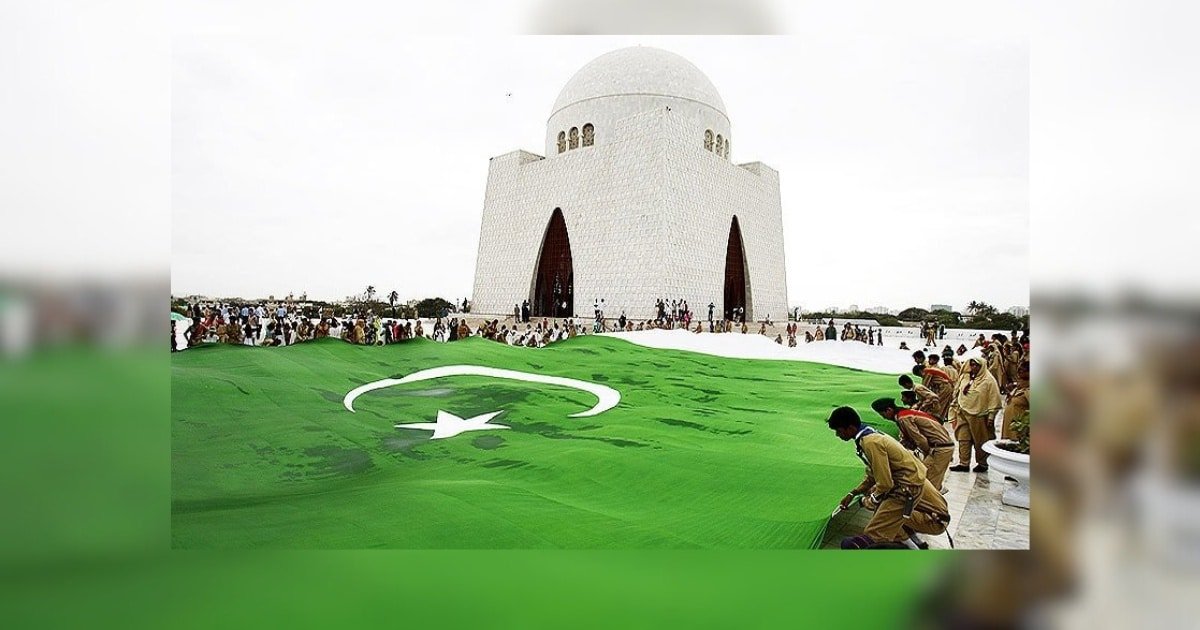What It Means to be Independent
Pakistan will celebrate its 78th Independence Day on Thursday, 14 August 2025. We are a blessed country with an unmatched potential globally. From geostrategic location, youth, agriculture, minerals, technology, diverse culture and languages, Pakistan can truly become one of the leading nations of the globe. However, now the question arises, why, after 78 years of independence, have we yet to tap this potential? It is often said that “Pakistan is not a poor country, it is a poorly managed country.” Why does management still remain our primary issue? What is impeding the real rise of this nation? Why can’t a country with an approximate diaspora of over 9 million manage its own affairs? To answer these harsh questions, we must look into our history, correct our present, and pave the way for our future.
Historical Prospective
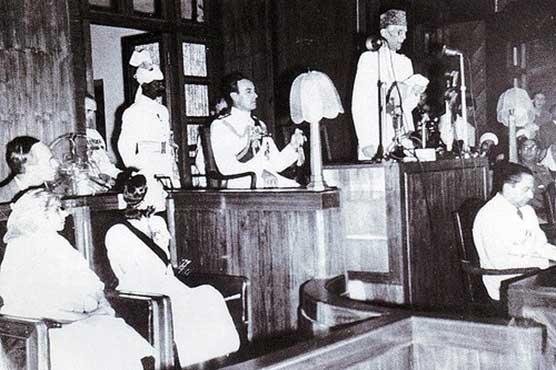
Source: Dunya News
The problems we are facing are not new. Even before independence, the subcontinent was suffering from this curse – corruption. Quaid-e-Azam Muhammad Ali Jinnah, while addressing the constituent assembly on 11 August 1947, stated, “One of the biggest curses from which India is suffering — I do not say that other countries are free from it, but I think, our condition is much worse — is bribery and corruption. (Hear, hear.) That really is a poison. We must put that down with an iron hand, and I hope that you will take adequate measures as soon as this Assembly can do so”. Seventy-eight years have passed, and we are still facing this rampant disease – the reasons are manifold. Pakistan has struggled to fight corruption due to weak accountability systems, political interference, and poor enforcement of laws. Many cases are delayed or used for political gain, which reduces public trust. Lack of transparency and limited awareness among citizens also allow corrupt practices to continue. Economic pressures and low salaries in the public sector make corruption more tempting. To move forward, in the next 5 years, Pakistan needs to abolish paper currency and shift completely to digital currency. Stronger institutions, a fair justice system, and smarter use of technology to track and prevent corruption remain utmost important. Any form of corruption must be abhorred nationally.
You may Like To Read: The Indus Waters Treaty: A Lifeline for a Young Nation
Political Stability and Economic Growth: Why They Matter for Pakistan
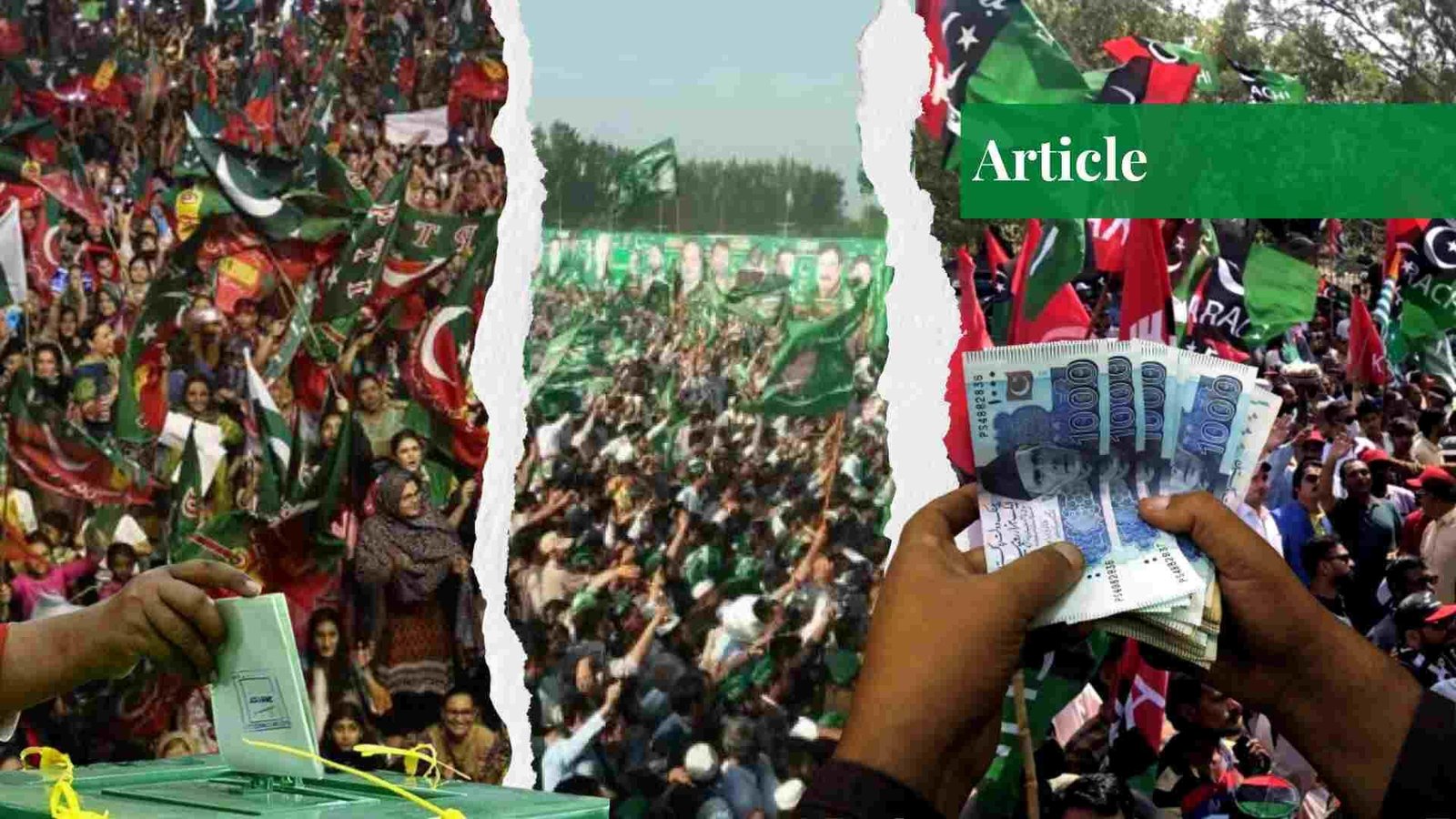
Source: Paradigm Shift
Pakistan’s history has been shaped by repeated political turmoil. Political stability and economic growth go hand in hand. Without stable politics, the economy suffers. This link has always been central to how countries make policies. After the death of Quaid-e-Azam Muhammad Ali Jinnah and the assassination of Liaquat Ali Khan, Pakistan entered a long period of instability. In the late 1950s and 60s, the country saw strong economic growth under the military rule of Ayub Khan. But this was not a democratic government. The 1970s began with major political unrest, leading to the separation of East Pakistan. Later, General Zia’s military rule banned political activity, which slowed down the development of democratic systems. Frequent changes in government marked the 1990s. This led to rising foreign debt, falling exports, and a near economic collapse. Again, a military government under General Pervez Musharraf brought back some stability. During his time, Pakistan’s economy grew by 7%. When civilian governments returned, people hoped for steady growth. But political instability returned, causing inflation, unemployment, and a drop in foreign investment and reserves. To move forward, Pakistan needs a united approach to politics. All parties should follow the Charter of Democracy. This means building strong institutions, an independent judiciary, and fair elections. Criticizing policies is healthy, but actions that harm long-term progress must be avoided. The path to lasting growth lies in a strong and evolving political system. This includes an independent election commission, empowered political institutions, and active youth participation.
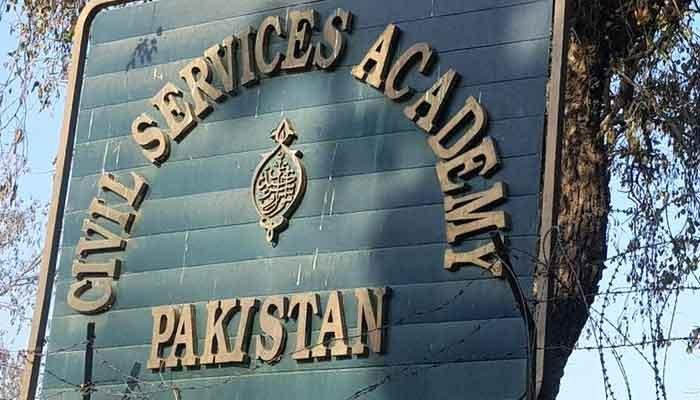
Source: Pakistan Today
Fixing Pakistan’s Civil Administration: A Practical Plan
Pakistan’s civil administration needs serious reform. Changes must be made with full commitment, keeping national interest above all. Today’s bureaucratic system is seen as slow, outdated, and lacking proper training and accountability. One key solution is to bring in technocrats—experts in fields like economics, engineering, public health, IT, and climate science. These specialists can help solve modern problems more effectively. In 2019, Pakistan began hiring technocrats at mid and senior levels. This was a good start, but it can be improved. For example:
- Open top positions (like Joint Secretary or Director) to private sector experts and academics.
- Use fair selection methods like written tests, interviews, and portfolio reviews.
- Follow models like the UK’s “Direct Appointment” system, adapted for Pakistan.
New service groups should be created for core areas. These groups should have exams focused on technical skills. Ministries should also appoint technocrats as advisors with real decision-making power—like a Chief Economist in the Finance Division. Technocrats rely on data, scientific models, and global best practices. For example, an economist can design more effective tax systems, and an engineer can enhance infrastructure. This leads to better policies and stronger results. Modern tools like AI, GIS, predictive analytics, and online approvals should be used to speed up services, cut corruption, and improve governance. Of course, there will be resistance. Powerful groups like the Pakistan Administrative Service (PAS) may feel threatened. To ease this, reforms can be rolled out in phases. At first, technocrats can report to senior generalists. Technocrats may also face challenges like dealing with politics, working across departments, or managing fieldwork. To help, they should get training in public administration, leadership, and local governance. Field postings in rural areas can help them stay connected to the grassroots. Political interference is another concern. It can be reduced by using independent selection panels with academics, judges, and civil society members. To start:
- Fill 5–10% of senior roles in key sectors (energy, climate, IT) with technocrats.
- Change the Civil Servants Act (1973) to allow lateral entry and technical career paths.
- Advertise roles globally and use trusted agencies like the UN or World Bank to vet candidates.
- Pair technocrats with experienced bureaucrats for mentorship.
- Use performance contracts with clear goals (e.g., “Cut power losses by 10% in 18 months”).
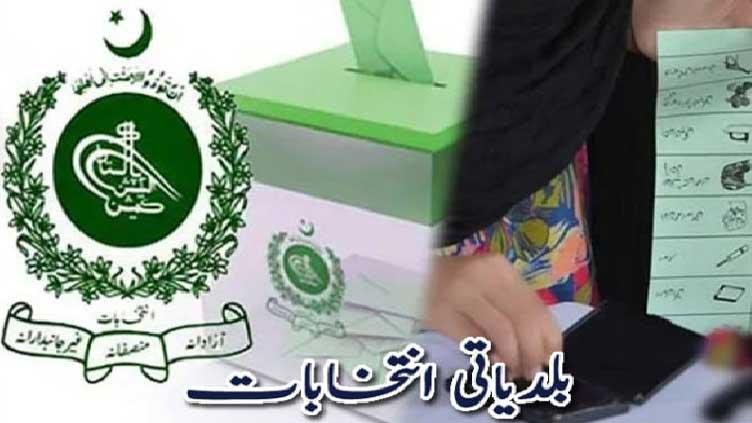
Source: Dunya News
Why Local Governments Matter for Pakistan
“Government of the people, by the people, for the people, shall not perish from the earth” ~ Abraham Lincoln.
Local governments are the backbone of democracy and public service. Around the world, countries have shown that giving power to local authorities leads to better results. In Germany, local governments handle key services like education and health, making them more efficient. In Brazil, people help decide how local money is spent, which has reduced corruption and increased trust.
In Pakistan, experts agree that strong local governance is vital. But many local reforms came from military rulers who wanted public support—not lasting change. One major effort was General Pervez Musharraf’s Devolution of Power Plan in the 2000s. It created a three-level system: district, tehsil, and union councils, with elected officials managing local services. It also introduced Citizen Community Boards and Musalihat Anjumans to involve people in development and resolve local disputes. For the first time, elected officials had more power than bureaucrats. However, this system lacked constitutional protection. After Musharraf left, it was dismantled. Since 2008, elected governments have delayed local elections, and provinces have resisted giving real power to local bodies.
You may Like To Read: Information as a Weapon: How ISI Shapes Perception in War
To fix this, Pakistan needs strong legal and political reforms:
- Make local governments mandatory by changing Article 140A of the Constitution. Give them full control over basic services like education, health, sanitation, and infrastructure.
- Hold regular, fair elections through an independent body. Ensure women, minorities, and youth are well represented.
- Give financial independence by guaranteeing 25–30% of provincial funds to local governments. Let them collect local taxes and receive federal grants directly.
- Transfer real authority over staff and services to local governments. Remove overlapping provincial departments and reduce the power of Deputy Commissioners over elected mayors.
- Build capacity by creating training institutes and local civil services.
- Ensure accountability through public audits, citizen budgeting, and legal checks on provincial interference.
These changes will face resistance from powerful groups. But with strong political will, Pakistan can turn local governments into engines of democracy and better service delivery.
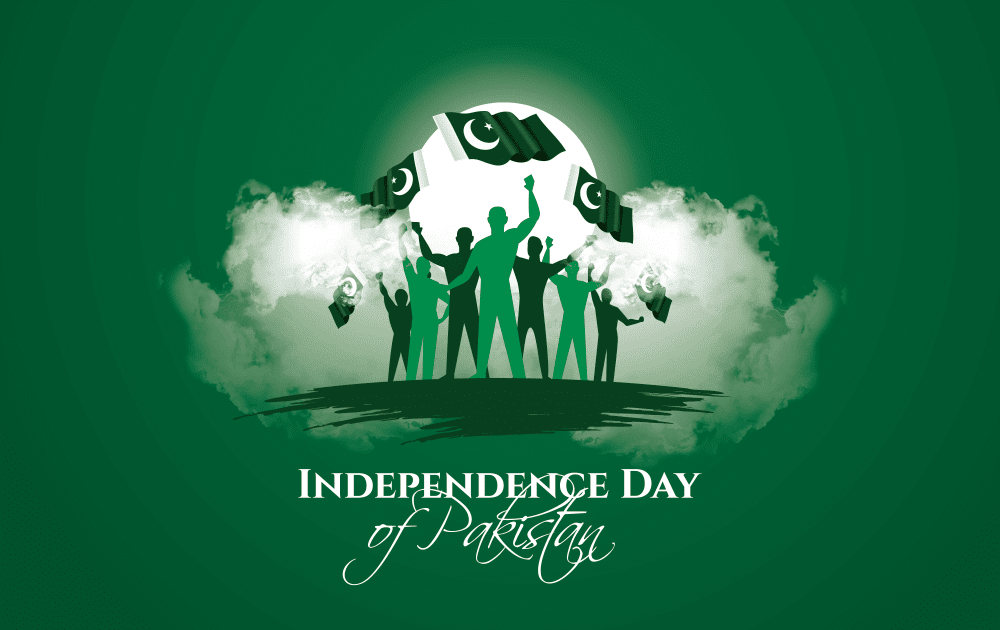
Source: Khyber News
As Pakistan marks its 78th Independence Day, it stands at a crossroads. The country has immense potential—its youth, resources, and strategic location are unmatched. But to truly rise, we must fix what holds us back: weak governance, corruption, and poor management. The road ahead demands bold reforms in politics, civil administration, and local governance. We need honest leadership, empowered institutions, and active citizen participation. With unity, vision, and commitment, Pakistan can move from promise to progress—and finally become the nation it was meant to be.

